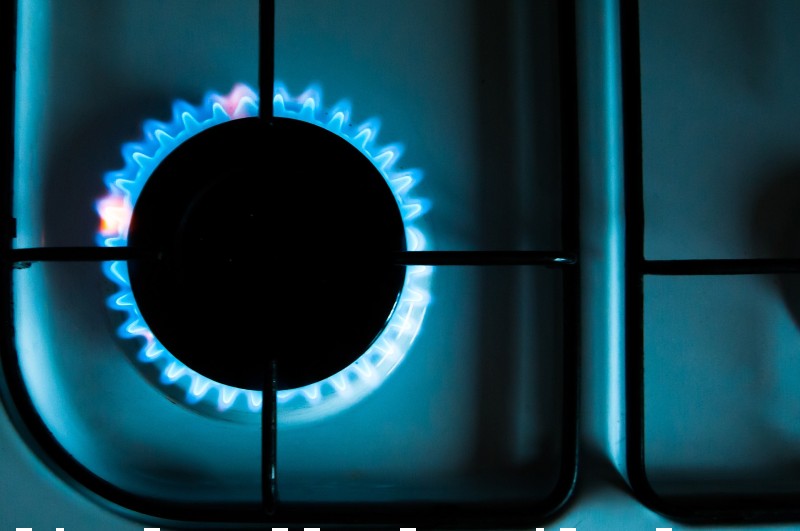Reduce your energy bills by finding the best gas prices for your home

Flick the switch and start saving on your energy bills
Switch-Plan helps you find the best and cheapest energy contract . Start saving now!
Free Service
Gas is an essential utility for homes across the UK. In fact, we use so much gas that, for most UK households, the fuel makes up roughly half of their annual energy bill. This works out to an average of £495.60 per year. As gas forms a major part of household outgoings, making sure you get a great deal on your gas supply is essential. Finding out a little more about how gas prices are calculated and what causes gas prices to rise should help you optimise your gas bills and find the best tariff for your home.
Last update: November 2022
As you may have heard on the news, the UK energy market is currently under an immense amount of stress as a result of a global gas shortage driving up costs and putting several energy suppliers out of business. To learn more about this and stay updated on a daily basis you can read our page on the UK energy crisis.

How to compare gas prices and find the best gas prices
If there’s one thing we’re all looking for from our gas supplier, it’s low prices. Securing a cheap tariff will help you to minimise your energy bills and take the strain off of your finances.the best way you can do this is by comparing gas prices . The best way to find a great value deal is to compare energy prices available from all the suppliers in the market. This will allow you to weed out any costly plans and zone in on the suppliers offering the best rates. Use an impartial comparison tool like our Switch Plan to find the best deals for your home. When comparing gas prices, there are a few different things you’ll need to look out for. The most important are:
- Unit price
- Standing charge
- Fixed term period
- Exit fees
The unit price is the amount you’ll pay for each kWh of gas you use. In the UK, the average cost per kWh of gas is 3p-4p. The standing charge is the amount your energy company will charge to connect your property to the grid. You’ll pay this fee every day that you’re connected to the mains gas supply, whether you use any gas or not. As standing charges are set by the energy supplier, they can vary significantly. In the UK, you can pay anywhere from 10p-80p per day for your gas connection. The fixed term period is the length of time that your tariff will run for. During the fixed term period, your energy supplier won’t be able to put your gas prices up or down. This will allow you to budget effectively for your energy bills and ensure you don’t get any nasty surprises at the end of the month. If you decide to leave your energy supplier, or switch tariffs, before your fixed period comes to an end, your supplier will probably charge you an exit fee. Although not all energy companies apply exit fees to customers breaking their contracts, most do. The average cost of an exit fee in the UK is £20-£30 per fuel.
What are the best and available gas prices in the UK?
Not all offers are also available. For that reason you can find a list with the live tariffs down below.
*Prices differ on a postcode basis, this table therefore displays national averages
*Based on Ofgem’s TDCV (2,900.00 kWh of ⚡ and 12,000.00 kWh of 🔥 per year).
**A Green tariff means the supplier injects in the grid the same amount of renewable energy that is consumed.
What are the best gas prices in the UK?
Following you'll find the cheapest gas prices in the UK:
*Prices displayed are national averages
*Based on Ofgem’s TDCV (2,900.00 kWh of ⚡ and 12,000.00 kWh of 🔥 per year).
**Is a Green tariff if all the energy consumed is compensated by renewable energy injections in the grid.
Green Gas tariffs
Green tariffs are always a good option. Below you find the cheapest options:
*Prices vary from one city to another, so we display national averages
*Based on Ofgem’s TDCV (2,900.00 kWh of ⚡ and 12,000.00 kWh of 🔥 per year).
**Is a Green tariff if all the energy consumed is compensated by renewable energy injections in the grid.
Will gas prices rise in 2021?
At the moment, the Ofgem price cap is at its lowest level ever. This is largely due to the Covid-19 pandemic which caused a drop in demand for both gas and electricity. As a result of this drop in demand, the cost of wholesale gas has fallen and prices for the end consumer have come down.


Want to switch energy suppliers? Switching with us has never been simpler.
Free Service
Let Papernest help you with your electricity and gas needs.
More info
What can I do if my energy supplier raises prices?
If your energy supplier puts its prices up, there are a number of things that you can do to optimise your gas bills and keep your energy payments down. The first thing you should do is call our Switch Plan to compare prices and deals. This will give you a good idea of just how much you could save by either switching supplier or moving to another tariff with your existing company. The average household can save up to £300 per year by switching, so it’s well worth shopping around if you feel your current supplier is charging you too much. Switching is quick and easy and you won’t see any interruption to your gas supply when you move providers.
How long does it take to switch gas suppliers?
The amount of time it takes to switch suppliers can vary from company to company. For those signed up to the Energy Switch Guarantee, it should take a maximum of 21 days to complete the process. In some cases, it can be even quicker. If your supplier isn’t signed up to the Energy Switch Guarantee, switching may take a little longer. Most suppliers will wait until the end of the 14-day cooling off period before they start the switching process.
Are there green gas suppliers available?
Over the past few years, a lot of suppliers have started offering greener tariffs. Most of these environmentally friendly deals offer customers 100% renewable energy and some also offer green or offset gas. If you’re looking for ways to reduce your carbon footprint, switching to one of these green deals could be the perfect option. Energy suppliers currently offering green or carbon neutral gas include:
- Green Energy UK – 100% green gas
- Ecotricity – Carbon neutral gas
- Octopus Energy – Carbon offset gas
- Bulb – 10% green gas, the rest is carbon neutral
- Octopus Energy – 15% green gas, the rest is carbon neutral
Green gas is largely harvested from rotting biowaste. These organic materials release gas as they decompose, this is then collected and pumped into the National Grid. As green gas isn’t a fossil fuel, it’s a lot better for the environment and is also a more sustainable way to power our homes. If you select a tariff in which your gas is offset or neutral, your supplier will invest in environmental schemes in order to balance out your carbon footprint.
How do gas prices work?
Who controls gas prices in the UK?
UK gas prices aren’t controlled by one overall organisation but are influenced by a number of different factors. One of the most important is the abundance and cost of natural gas. The more natural gas there is available, the lower the cost of wholesale gas will be. Almost half of the gas we use in the UK comes from domestic reserves in the North Sea and East Irish Sea. However, these reserves are slowly being depleted, pushing up the percentage of gas that’s important from other countries. The rest of our gas comes from European pipelines, and liquified natural gas (LNG) imports. The table below shows a breakdown of where our gas supply comes from
| Domestic gas reserves | 44% |
|---|---|
| European gas pipelines | 47% |
| LNG imports | 9% |
| Wholesale costs | 46.24% |
|---|---|
| Networks | 25.64% |
| Operating costs | 20.41% |
| Environmental and social obligation costs | 1.86% |
| VAT | 4.76% |
| Supplier pre-tax margin | -0.49% |
| Other direct costs | 1.58% |
![]()

Is gas cheaper than electricity?
On average, a kWh of gas is around a quarter of the price of a kWh of electricity. However, as most households use a lot more gas than they do electricity, your average annual spend on the two fuels is likely to be around the same. So if you’re currently trying to decide between a gas boiler and electric boiler, or a gas hob and electric hob, the low price of gas shouldn’t sway your decision.
Gas price evolution
As gas prices are influenced by so many different factors, they can go up and down on a regular basis. Looking at the history of gas prices in the UK should help you to get to grips with your own energy bills and understand exactly what you’re paying for.
How have gas prices evolved over the past 10 years?
Gas prices are constantly going up and down. The table below shows the evolution of day-ahead contracts over the past 10 years. As a lot of energy companies buy their gas weeks, months or even years in advance, day-ahead contracts aren’t a completely reliable indicator of gas price evolution in the UK. However, they do offer an insight into how prices have fluctuated over the past decade.
| Date | Price |
|---|---|
| 01/01/2010 | 39.77 |
| 01/01/2011 | 55.98 |
| 01/01/2012 | 54.43 |
| 01/01/2013 | 66.83 |
| 01/01/2014 | 65.10 |
| 01/01/2015 | 46.10 |
| 01/01/2016 | 32.05 |
| 01/01/2017 | 53.39 |
| 01/01/2018 | 50.44 |
| 01/01/2019 | 57.71 |
| 01/01/2020 | 27.90 |
Will gas prices rise in 2021?
In February 2021, Ofgem announced that it would be raising its energy price cap. These changes will come into force in April 2021. In response to the new price cap, a number of energy companies, including British Gas, EDF Energy and E.On, have announced they will be putting prices up. On average, a dual fuel tariff will increase by £96 in 2021.
How do rising gas prices affect the economy
Rising gas prices have a knock-on effect on several areas of the economy. For a start, the more money households spend on gas, the less they have to spend on eating out, shopping and leisure. Businesses that consume a lot of gas may also find that their running costs go up significantly and so have to pass prices rises on to the consumer. This can make it more expensive to buy products and services. Read more:
Looking to switch energy deals?Leave your phone number to request a call back from us!
Free Service
FAQ
Can I switch gas suppliers if I am a renter?
As long as your name is on your energy account, you’re free to change your gas supply whether you own your own property or rent it from a landlord.
Switching your gas supplier can help you to find a better deal and lower your monthly energy payments. You might also want to switch to a new company if your current supplier has poor customer service or lacks a good environmental policy.
Compare all available deals before switching your supply to ensure you get the best gas prices possible.
How will Brexit affect gas prices?
Now that the UK has formally left the EU, the real effects of Brexit are beginning to be felt. Over the next few months, you may well see your energy prices begin to creep up. This is because UK companies source both gas and electricity from Europe and transportation and admin costs are likely to rise as a result of Brexit.
A reduction in EU investment in energy infrastructure could also see UK customers pay more for their gas and electricity.
When do gas prices go up?
There’s no set time when gas prices go up. However, Ofgem, the energy regulator, does review its price cap twice a year. If they raise the cap, your bills could rise in April or October as a result.
Another time that you’re likely to see gas prices go up is at the end of your fixed term contract. Once this set period comes to an end, your supplier will put you on a default tariff, this is likely to be more expensive than your previous fixed-price deal.
The best way to avoid this is to sign up for another fixed period when your current contract expires. You can either choose to stay with your current supplier or shop around for a better deal.
What is the cheapest gas tariff in the UK?
As gas prices and tariffs can vary by region and usage, it’s impossible to say which supplier has consistently got the cheapest gas prices. The best way to find the best deal for your home is to use an impartial price comparison service like our Switch Plan.
What percentage of gas prices are taxes?
According to Ofgem, around 4.76% of the total cost of a gas bill is made up by VAT, while a further 1.86% is social and environmental obligation costs.
Updated on 11 Nov, 2022
William Dautel
Website manager
William is a content marketing specialist. After 3 years writing brand strategies he joined papernest to help create the best content to help people handle and save on their utilities.
William is a content marketing specialist. After 3 years writing brand strategies he joined papernest to help create the best content to help people handle and save on their utilities.
Alexander Striano
Energy Specialist & Copywriter
Alex joined the papernest team as a SEO Project Manager Assistant for Broadband Plans. He has developed a real expertise on connectivity topics and works on delivering the best possible content to help you navigate your broadband in and outside your home.
Alex joined the papernest team as a SEO Project Manager Assistant for Broadband Plans. He has developed a real expertise on connectivity topics and works on delivering the best possible content to help you navigate your broadband in and outside your home.
Papernest deals
Our energy advisors are here to help you find the best deal
Get your new energy deal in no time.
Spam free guarantee! We will never communicate your details to third party.









